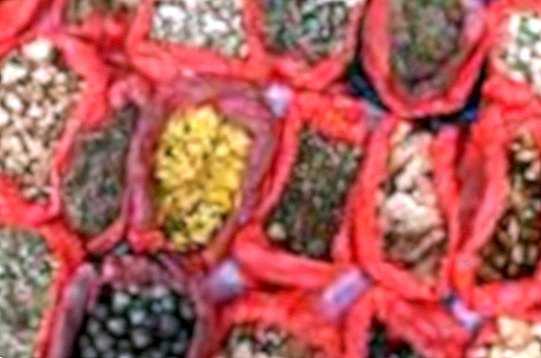"Millennial eggs with tofu, please!"

First a confession: Yes, I ate dog! The first time I had been taken by surprise. A Chinese Freud had invited me to dinner. "I want to show you some Chinese specialties," he had said. And I had not switched fast enough. The restaurant was romantically decorated, candlelight and cuddly couples. In the middle of the meal my friend laughed loudly. "Do you know what you're eating right now?" I hear this question over and over again, even after seven years in China you can still surprise me with it.
Food is the biggest misunderstanding between China and the West.
Meanwhile, I sometimes catch myself thinking like a Chinese myself. The other day in the mall: I strolled aimlessly through the shops and was suddenly in front of a huge aquarium with ornamental fish. A big swarm, close to the window, looked at me. And my first thought was: "Hello, you look delicious!" And then I thought, "Yummy ?!" I was a little scared of myself. The Chinese owe their experimentation to having the most varied and varied cuisine in the world. What comes to the table in China in the evening really has nothing to do with the wobbly sweet and sour pulp that is served in many German Chinese restaurants. Most Chinese do not even know the fortune cookies, because they are originally from Japan. Food is perhaps the biggest misunderstanding between China and the West.
In China, eating is much more than food intake: Three hot meals are the most important rituals in Chinese daily routine, everyone gets nervous if he does not sit around lunch at 12:00. Even toddlers can enumerate the favorite dishes of long-dead emperors and generals. They also know the subtle differences of the "ten great culinary traditions" that have left their many thousands of dishes to Chinese cuisine. Some people say that the appetite of the Chinese is still rooted in the hungry times. During the Great Leap Forward and the Cultural Revolution, China was suffering from food shortages. The great leader Mao Zedong was probably the only fat Chinese at that time. But after 30 years of economic boom, the Chinese would have actually already eaten full.
It was only a few years ago that I really understood how important the Chinese are to their food. In October 2003, we (1.3 billion Chinese and I) sat in front of the TV and watched as Yang Liwei was shot into space on board the Shenzhou 5, China's first astronaut. The state television broadcast live for hours. When the rocket reached orbit, the cameras showed radiant astronaut Zhang Yumei, who sat down at the command center at the radio. Her husband was the first Chinese in the universe, and her first question was, "Have you eaten yet?" Later, viewers also learned that the Space Agency has prepared "Braised Pork", "Steamed Duck Breast" and "Moon Taro Tarts" for their astronauts.
In China, food is being spoken throughout the day
The Germans talk about the work all day long. The Chinese talk about food all day, even at work. This is so contagious that you automatically join in. And so it's no wonder that the conversations in our house sound like this: "What do we eat on the weekend?" - "Shall we go to the restaurant 'Di Shui Dong' (" drip-water cave ")? I miss the fried pork belly with sweet soy sauce." - "Me too, but we must not forget to order the cold mixed fish skin and the duck fire pot and absolutely the millennial eggs with tofu!"
When we go out to eat, we drum up as many friends as possible - because the more you can order. The restaurants have round tables, everything comes in the middle on a rotatable plate, and it is shared.
All of Shanghai eats the little monsters in summer.
The whole of Shanghai is looking forward to the summer, then the culinary festival season begins. During this time, millions of little monsters fall over the city. "Xiao long xia" is the name given to the animals with the hard shell and the scissorhands in Chinese, translated as "little dragon shrimp" or crayfish. Then long queues form in front of the specialty restaurants. Some wait until well past midnight to eat the little monsters. Real connoisseurs go to special crayfish restaurants, which offer nothing else than the "Xiao long xia" without side dish, either hot, medium or slightly spicy. No candlelight, no distinguished waiters, no light background music - it's really just about food. In my favorite restaurant, the animals are served in large bowls. The guests tie up plastic aprons and eat directly with their hands.Many have developed sophisticated techniques to suck the tender white flesh from the tiny limbs of the crabs. In front of each guest is a garbage pail on the table. The leftovers are simply dropped out of your mouth.
All of Shanghai is addicted to it, the crayfish season is an exception. Then hang warning signs at airports: crayfish in hand luggage prohibited. Experts claim that the restaurants wash the crayfish in washing machines - depending on the detergent. The Shanghaiers but that does not matter. Waiter, another bucket of crabs! Fire sniper!










